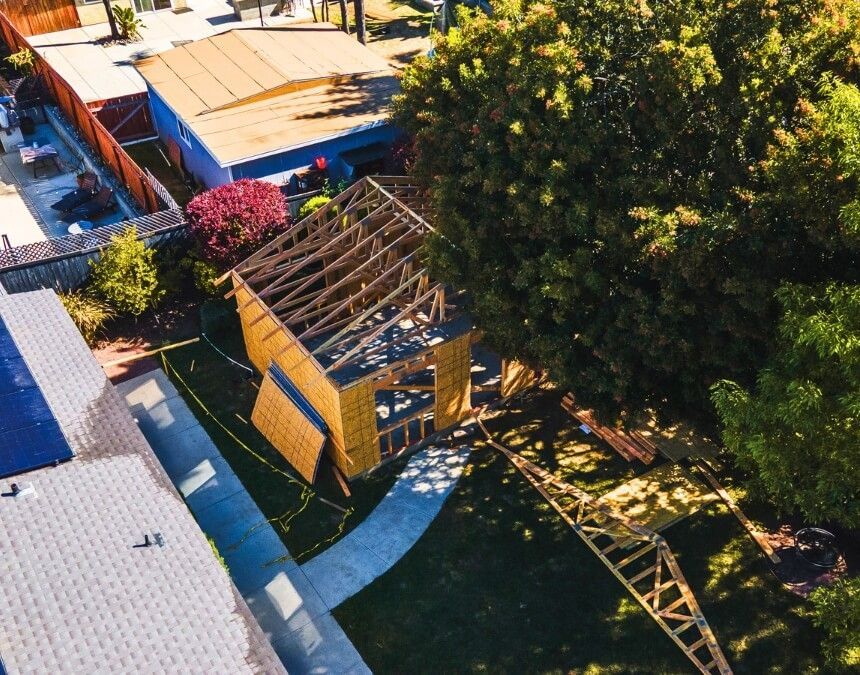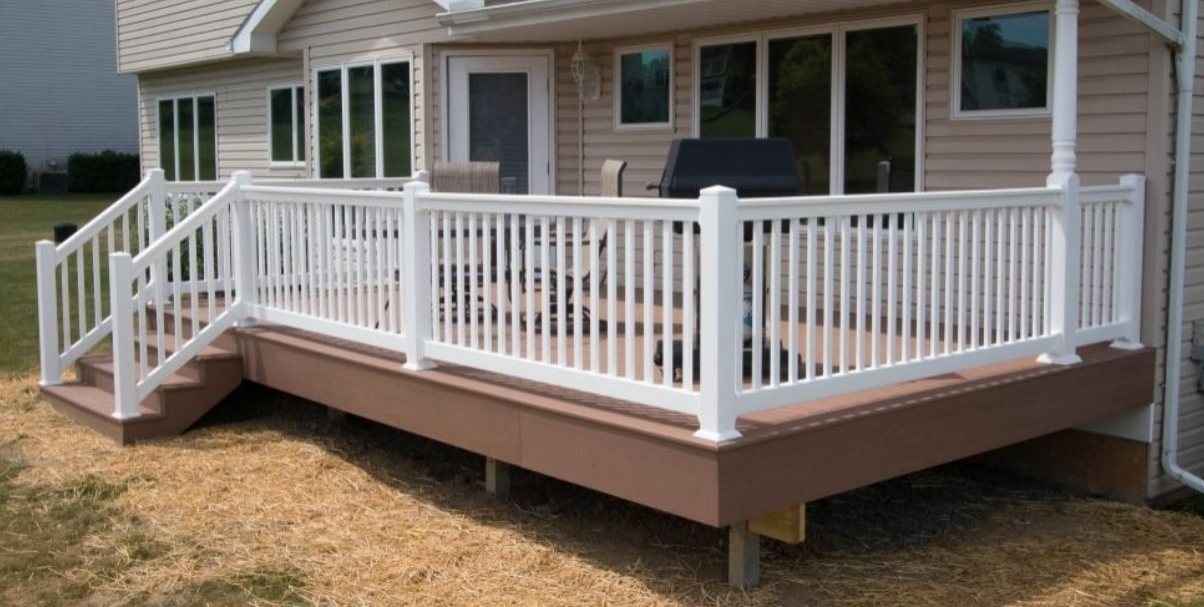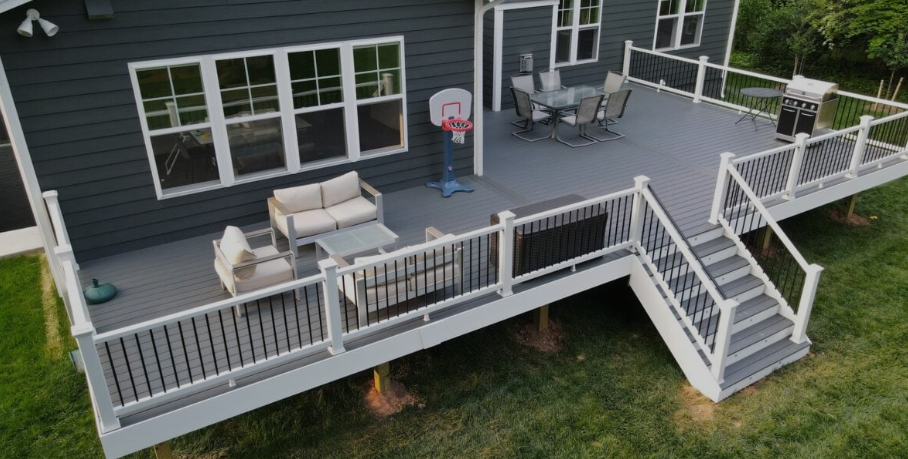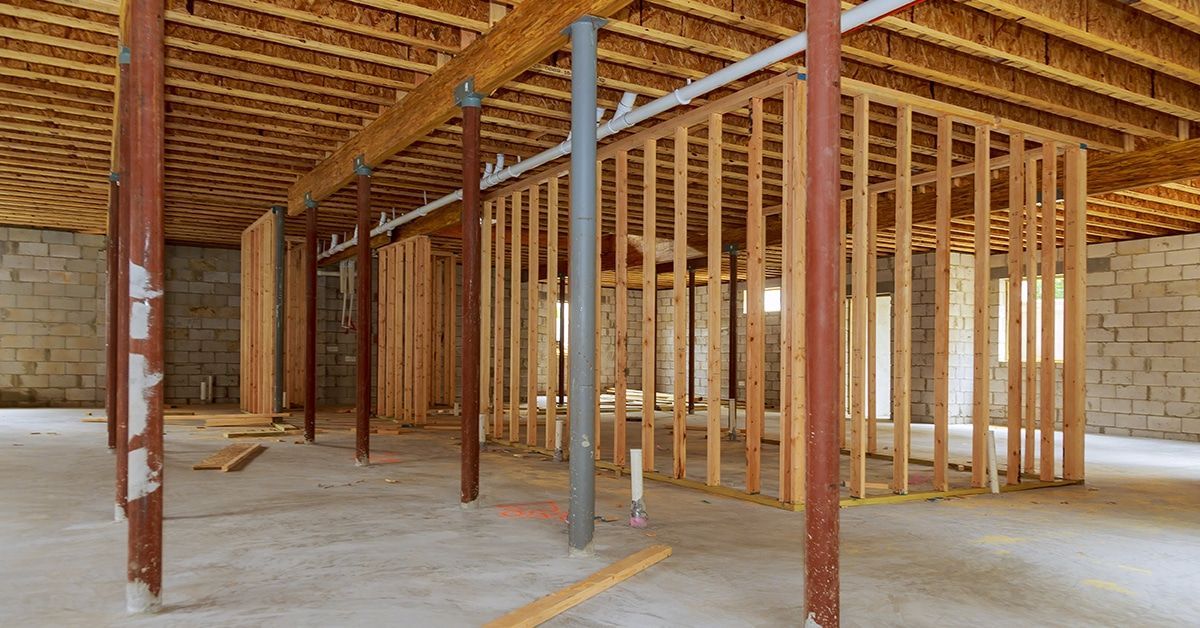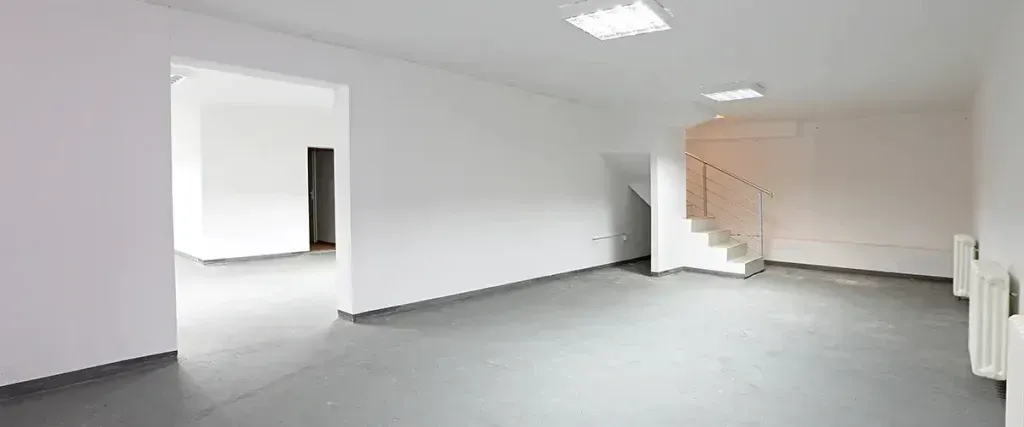Eviction Cleanout Services - Rhode Island
Eviction situations create some of the most challenging property management scenarios Rhode Island landlords face. Unlike typical tenant turnovers where departing residents remove their belongings, evictions often leave properties filled with abandoned possessions, damaged items, and accumulated debris requiring complete removal before units can be prepared for new tenants. Understanding effective eviction cleanout strategies helps Providence, Warwick, and Cranston landlords navigate these difficult situations while minimizing vacancy periods and restoration costs.
Understanding Rhode Island Eviction Processes
Rhode Island eviction procedures follow specific legal protocols landlords must observe before disposing of tenant belongings. The eviction process begins with proper notice and court proceedings, eventually resulting in court orders authorizing tenant removal and property repossession. Only after completing legal procedures can landlords access properties and address abandoned belongings - premature cleanout attempts risk legal complications potentially costing far more than proper procedure patience.
Once courts authorize property repossession, Rhode Island law still governs how landlords handle abandoned belongings. Specific notice periods and storage requirements protect tenant property rights even after eviction. Understanding these obligations prevents legal problems while allowing systematic cleanout once requirements are satisfied. Providence landlords managing urban properties, Warwick landlords overseeing suburban rentals, and property owners throughout Rhode Island benefit from consulting attorneys ensuring their cleanout procedures comply with state regulations.
The Reality of Eviction Cleanouts
Eviction cleanouts reveal property conditions ranging from relatively orderly to absolutely catastrophic. Some evicted tenants leave properties largely empty with minimal debris, while others abandon entire households of possessions mixed with trash, creating overwhelming cleanup challenges. Woonsocket triple-decker units might contain multiple apartments worth of belongings after multi-family evictions. Cranston single-family homes could harbor everything from furniture to personal items throughout every room and storage area.
Unpredictability makes eviction cleanouts particularly challenging compared to standard turnovers. Landlords cannot accurately estimate debris volumes until accessing properties post-eviction. Some situations involve hoarding conditions with floor-to-ceiling accumulation throughout entire units. Others feature relatively modest abandonment but significant damage requiring disposal of property fixtures beyond just tenant belongings. This uncertainty demands flexible cleanout approaches accommodating situations ranging from minor to massive.
Safety Considerations in Eviction Cleanouts
Safety must precede efficiency when conducting eviction cleanouts in Rhode Island properties. Evicted tenant anger sometimes manifests in property sabotage - deliberately damaged fixtures, contamination, or booby traps intending harm to landlords or workers. Approach eviction properties cautiously, inspecting thoroughly before beginning aggressive cleanout work. Providence landlords entering urban properties, Warwick owners accessing suburban units, and landlords throughout Rhode Island should prioritize safety over speed.
Structural hazards beyond intentional sabotage also threaten safety during eviction cleanouts. Hoarding situations create collapse risks from accumulated materials, pest infestations pose health hazards, and damaged utilities including plumbing or electrical systems create immediate dangers. Professional assessment before beginning cleanouts identifies serious risks requiring specialized remediation before general cleanout proceeds. Never risk personal safety rushing eviction cleanouts - property restoration isn't worth injuries or worse from preventable accidents.
Legal Requirements for Abandoned Property
Rhode Island regulations governing abandoned property disposal require landlords to follow specific procedures before discarding tenant belongings. After satisfying legal notice requirements, landlords may dispose of abandoned items, but documentation proving compliance with notification procedures protects against subsequent disputes. Photograph abandoned property before disposal, maintain records of notification efforts, and document disposal timing and methods creating comprehensive evidence of proper procedure.
Valuable items require special consideration under Rhode Island abandoned property laws. Items with obvious significant value - jewelry, electronics, important documents - may need extended holding periods or additional notification attempts before disposal. Consult legal guidance regarding high-value items discovered during eviction cleanouts. Cranston landlords finding valuable property, Providence owners discovering significant belongings, and any Rhode Island landlord encountering items of apparent worth should verify proper handling procedures before disposal.
Organizing Eviction Cleanout Logistics
Systematic approaches transform chaotic eviction cleanouts into manageable projects. Begin by assessing the full scope - walk through entire properties documenting conditions and estimating debris volumes. Divide properties into zones tackling one area at a time rather than randomly attacking entire units simultaneously. This organization maintains progress visibility and prevents becoming overwhelmed by enormous overall scope.
Assemble appropriate supplies before beginning - heavy-duty trash bags, work gloves, cleaning supplies, and safety equipment including masks if encountering concerning conditions. Secure adequate disposal capacity recognizing that eviction cleanouts typically generate more debris than standard turnovers. A 20-yard dumpster measuring 14'L x 8'W x 6.5'H positioned near unit access points facilitates efficient debris removal during multi-day cleanout projects requiring substantial capacity.
Sorting and Disposal Decisions
Eviction cleanouts require constant sorting decisions distinguishing items requiring disposal from those worth retaining, donating, or selling. Generally, eviction situations involve disposing of nearly everything due to abandonment circumstances, property conditions, or damage rendering items worthless. However, occasionally discovering items with clear value or requiring special disposal - electronics, hazardous materials, important documents - necessitates appropriate handling separate from general debris removal.
Create sorting categories streamlining decision-making: obvious trash for immediate disposal, potential donations if items warrant, special handling materials like electronics or chemicals, and landlord property requiring retention like keys or documents. Warwick landlords working systematically through eviction cleanouts, Providence property managers organizing urban unit turnovers, and Rhode Island landlords throughout the state benefit from clear sorting protocols preventing decision fatigue during overwhelming projects.
Dealing with Excessive Accumulation
Some eviction cleanouts involve hoarding conditions where tenants accumulated possessions far beyond normal household amounts. These situations create extreme challenges with floor-to-ceiling materials throughout units, blocked passages preventing access, and volumes potentially requiring multiple dumpsters for complete removal. Hoarding cleanouts demand patience and systematic approaches preventing workers from becoming overwhelmed by seemingly impossible scope.
Begin hoarding cleanouts from entry points working systematically through properties establishing clear paths before addressing individual rooms. Remove obvious trash first creating working space, then address accumulated possessions in manageable sections. Document conditions thoroughly before cleanup begins - photographs prove pre-existing conditions if disputes arise about property damage versus tenant-created conditions. Northern Rhode Island landlords facing hoarding situations in older multi-family properties should consider professional hoarding cleanup services for extreme cases exceeding typical landlord capabilities.
Furniture and Large Item Removal
Eviction cleanouts typically involve substantial furniture removal as tenants abandon beds, sofas, tables, and other large items. These bulky pieces consume significant dumpster space requiring strategic loading maximizing container capacity. Break down furniture when possible - removing legs, disassembling frames, and compacting pieces - creating more efficient loading than tossing intact items haphazardly.
Providence triple-decker evictions might involve hauling furniture down multiple flights of stairs without elevator assistance. Warwick single-family evictions could require moving large items through narrow doorways or around tight corners. Plan furniture removal routes before attempting moves, measure doorways ensuring items fit, and recruit adequate help for safe lifting. These preparations prevent damage to property structures during cleanout efforts that could add restoration costs beyond just debris removal expenses.
Appliance Disposal from Evictions
Evicted tenants sometimes own appliances they abandon during departures - portable air conditioners, microwaves, space heaters, and various other devices requiring disposal. Rental properties typically include major appliances like refrigerators and stoves remaining as landlord property, but these sometimes need replacement due to damage or neglect during problem tenancies resulting in evictions.
Appliances require proper disposal separate from general debris due to refrigerants, electronic components, and various materials needing specialized handling. Rhode Island regulations govern appliance disposal with specific requirements for refrigerant-containing items. Coordinate appliance removal through appropriate channels ensuring legal compliance. Cranston landlords disposing of damaged refrigerators, Warwick owners removing tenant-abandoned appliances, and Rhode Island property managers throughout the state should verify proper disposal methods for different appliance types.
Hazardous Materials in Eviction Properties
Eviction cleanouts sometimes uncover hazardous materials requiring special disposal separate from standard debris removal. Cleaning chemicals, paints, automotive fluids, and various toxic substances occasionally appear in abandoned properties. These materials cannot go in standard dumpsters and require disposal through appropriate hazardous waste programs. Rhode Island municipalities maintain hazardous waste collection programs, though commercial disposal services may be necessary for substantial quantities.
Drug paraphernalia, biohazardous materials, or other concerning items discovered during eviction cleanouts may require contacting authorities before disposal. Never handle suspicious materials without proper protective equipment. Providence landlords encountering concerning materials in urban properties, Warwick owners discovering problematic substances, and any Rhode Island landlord finding potentially dangerous items should prioritize safety and legal compliance over expediency during disposal decisions.
Pest Infestations and Contamination
Problem tenancies resulting in evictions often involve property neglect creating pest infestations - rodents, cockroaches, bedbugs, and other pests requiring professional extermination before or during cleanout processes. These infestations complicate cleanouts by requiring protective measures preventing pest spread to other units or properties. Contaminated items may require immediate disposal rather than attempting salvage or donation regardless of apparent condition or value.
Address pest issues systematically rather than simply removing visible debris while leaving infestation sources. Professional pest control services should inspect properties and provide treatment recommendations. Some infestations require fumigation or other intensive treatments before cleanouts can proceed safely. Woonsocket multi-family property owners, Providence landlords managing adjacent units, and Rhode Island landlords anywhere properties face infestation risks should prioritize pest control preventing expensive spread beyond initially affected units.
Cleaning vs. Disposal Decisions
Eviction cleanouts require distinguishing between items needing disposal and property elements requiring cleaning for continued use. Built-in fixtures, flooring, walls, and permanent property features obviously remain despite tenant departure, but their conditions after problem tenancies may warrant replacement rather than cleaning. Cost-benefit analysis determines whether thorough cleaning restores acceptability or whether disposal and replacement provide better value.
Carpeting soiled beyond cleaning capabilities, appliances too damaged for repair, window treatments beyond salvaging, and various other borderline items require judgment calls balancing replacement costs against cleaning expenses plus resulting conditions. Cranston landlords evaluating unit conditions, Warwick property managers making restoration decisions, and Rhode Island landlords throughout the state benefit from understanding when disposal and replacement serve better than attempting restoration of severely compromised items.
Timing Eviction Cleanouts Strategically
Eviction cleanouts must balance speed restoring rental income against thoroughness ensuring complete property restoration. Extended vacancies cost landlords substantial lost revenue, creating pressure to complete cleanouts rapidly. However, rushed cleanouts sometimes miss issues requiring attention before new tenant occupancy, potentially creating problems during subsequent tenancies. Finding appropriate balance between speed and thoroughness optimizes eviction situation outcomes.
Consider market conditions when timing eviction cleanouts. Strong rental markets with high demand and low vacancy rates justify rapid cleanouts even at premium costs restoring rental income quickly. Slower markets with abundant vacancies allow more methodical approaches optimizing cleaning quality and cost efficiency over pure speed. Providence landlords in competitive urban rental markets face different timing pressures than rural Rhode Island property owners in areas with softer demand and longer typical vacancy periods.
Cost Management for Eviction Cleanouts
Eviction cleanouts represent unplanned expenses in rental property operations, making cost control important for maintaining profitability. Evaluate cost-effectiveness of different approaches - personal labor versus professional services, disposal methods comparing various options, and restoration decisions weighing cleaning against replacement. These considerations affect immediate cleanout costs and long-term property conditions influencing future maintenance needs.
Dumpster rentals provide cost-effective disposal for substantial eviction debris. A 15-yard container measuring 12'L x 7.6'W x 4.6'H handles typical single-unit eviction cleanouts efficiently at approximately $475 including 2 tons disposal capacity and up to 7 days rental. Larger situations requiring 20-yard containers cost around $540 with the same tonnage allowance and rental period. Additional days at $8 each and extra weight at $140 per ton provide flexibility accommodating unpredictable eviction cleanout timelines and volumes without dramatic cost increases.
Professional Cleanout Services vs. DIY
Rhode Island landlords must decide whether handling eviction cleanouts personally or hiring professional services. DIY approaches save labor costs but consume valuable time landlords might spend more productively on other property management tasks or income-generating activities. Professional services provide rapid, thorough cleanouts but charge fees reflecting their expertise, equipment, and labor costs.
Consider total costs beyond just direct service fees. Personal cleanout attempts requiring multiple days might cost more in lost productivity than professional service fees completing work in single days. However, straightforward cleanouts with modest debris volumes might not justify professional costs when landlords can complete work efficiently. Warwick landlords managing multiple properties might benefit from professional relationships for eviction situations, while Providence owners of single rental units could handle occasional cleanouts personally without overwhelming burden.
Documenting Eviction Cleanouts
Thorough documentation protects landlords throughout eviction cleanout processes. Photograph properties immediately after tenant removal showing abandoned belongings and property conditions before cleanout begins. Document the cleanout process itself with periodic photos showing progress. Photograph cleaned properties before restoration work begins, creating comprehensive visual records of entire processes from abandonment through preparation for new tenancy.
This documentation serves multiple purposes beyond just record-keeping. Security deposit disputes benefit from clear evidence of post-eviction conditions and necessary cleaning. Insurance claims for tenant damages require proof of conditions and restoration costs. Future evictions involving same problematic tenants benefit from prior documentation establishing patterns. Providence landlords managing court proceedings, Warwick owners resolving deposit disputes, and Rhode Island property managers throughout the state find comprehensive documentation invaluable during various post-eviction administrative processes.
Preparing Properties for New Tenants
Eviction cleanouts represent first steps in comprehensive property restoration preparing for new tenancies. After removing abandoned belongings and debris, properties require thorough cleaning, necessary repairs, and any improvements maintaining competitive rental conditions. These additional steps transform eviction properties from disaster scenes into attractive rental units commanding appropriate rents and attracting quality tenants.
Create systematic property restoration plans following cleanouts. Address all damages, update any tired finishes, deep clean thoroughly, and ensure all systems function properly. Properties showing eviction trauma never attract quality tenants - complete restoration erases evidence of previous problems. Cranston landlords preparing units for rerent, Warwick property managers restoring properties, and Rhode Island landlords anywhere working post-eviction should treat restoration as complete resets rather than just removing obvious problems.
Learning from Eviction Experiences
Eviction situations, while stressful and expensive, provide valuable lessons improving future tenant selection and property management practices. Analyze what led to evictions - inadequate screening, ignored warning signs, delayed intervention - identifying areas for improvement. Better tenant screening prevents many problem tenancies before they start. Earlier intervention addressing issues prevents problems from escalating to eviction severity.
Providence landlords refining tenant screening processes, Warwick property managers implementing improved policies, and Rhode Island landlords throughout the state learning from eviction experiences improve their operations long-term. While cleanout challenges occupy immediate attention post-eviction, extracting lessons preventing future situations provides greater long-term value than just addressing current crises. These improvements gradually reduce eviction frequency and severity, benefiting both landlord finances and operational stress levels.
Environmental Responsibility in Eviction Cleanouts
Despite challenging circumstances, Rhode Island landlords can maintain environmental responsibility during eviction cleanouts. Separate recyclable materials where feasible - metal items, clean cardboard, certain plastics - diverting them from landfills. Donate functional items to Rhode Island charities serving families needing household goods. These efforts reduce waste volumes while supporting community organizations.
Balance environmental ideals against practical realities of eviction situations. Contaminated items, damaged goods, or materials of questionable condition or cleanliness may not warrant donation attempts despite apparent functionality. Prioritizing worker safety and public health over maximizing donation or recycling volumes represents appropriate judgment in situations involving unknown property histories or concerning conditions. Warwick landlords disposing of questionable items, Providence owners making difficult decisions, and Rhode Island property managers statewide should maintain reasonable environmental consciousness without compromising safety or health.
Working with Contractors During Eviction Restoration
Eviction cleanouts often require contractor involvement for repairs, restoration, or specialized cleaning beyond debris removal. Coordinate contractor access with cleanout timing - clear spaces before contractors begin work preventing them from navigating around debris. Communicate about discovered damages or issues requiring attention beyond originally anticipated work scope.
Establish contractor relationships before evictions occur ensuring rapid response when situations arise. Contractors familiar with your properties and management standards provide better service than those requiring extensive orientation during crisis periods. Providence landlords maintaining contractor networks, Warwick property managers building service relationships, and Rhode Island landlords throughout the state benefit from pre-established connections facilitating smoother eviction restorations when these unfortunate situations occur.
Insurance Considerations for Eviction Situations
Landlord insurance policies may cover certain eviction-related damages beyond normal wear and tear. Review policy terms understanding what damages qualify for claims versus those considered normal rental business risks. Intentional tenant damage, theft of property fixtures, or vandalism might qualify for insurance coverage, though deductibles and claim processes require evaluation determining whether pursuing claims makes economic sense given specific damage amounts.
Document damages thoroughly supporting potential insurance claims. Photograph all destruction, compile repair estimates, and maintain records of cleanup and restoration costs. Even if ultimately deciding against filing claims, this documentation supports those decisions and provides records for future reference. Cranston landlords evaluating insurance options, Warwick owners reviewing coverage, and Rhode Island property managers assessing claim opportunities all benefit from understanding their policy terms and documentation requirements.
Moving Forward After Difficult Evictions
Eviction cleanouts represent emotionally and physically exhausting experiences for Rhode Island landlords. The combination of financial loss from unpaid rent, cleanup costs, lost rental income during vacancy, and sheer unpleasantness of dealing with abandoned, damaged properties creates genuine stress. Acknowledge these challenges while maintaining focus on forward progress - completing cleanouts, restoring properties, and returning to productive rental operations.
Maintain perspective recognizing evictions, while difficult, represent manageable business challenges rather than catastrophic failures. Most Rhode Island landlords face occasional problem tenancies despite best screening efforts. Learning from experiences, improving practices, and moving forward stronger creates positive outcomes from negative situations. Providence landlords emerging from difficult evictions, Warwick property managers completing challenging cleanouts, and Rhode Island landlords statewide navigating these situations should recognize their resilience and commitment to professional property management despite adversity.
Your Rhode Island Eviction Cleanout Partner
For reliable junk removal and disposal services supporting Rhode Island landlords through challenging eviction cleanouts, contact Rockhouse Disposal. Our team understands rental property challenges and provides flexible, responsive service accommodating unpredictable eviction situations. We offer 15-yard dumpsters for $475 and 20-yard containers for $540, both including 2 tons of debris and up to 7 days rental - essential capacity and flexibility for eviction cleanouts of unknown scope. Additional days cost just $8 each while extra weight runs $140 per ton, providing transparent pricing helping landlords budget during already expensive eviction situations.
Whether facing single-unit turnovers or complex multi-property challenges, we deliver the dependable service and local Rhode Island expertise making difficult eviction cleanouts more manageable.
Reach out today to discuss your property management needs and discover how professional waste management support helps Rhode Island landlords navigate challenging eviction situations efficiently and effectively.
